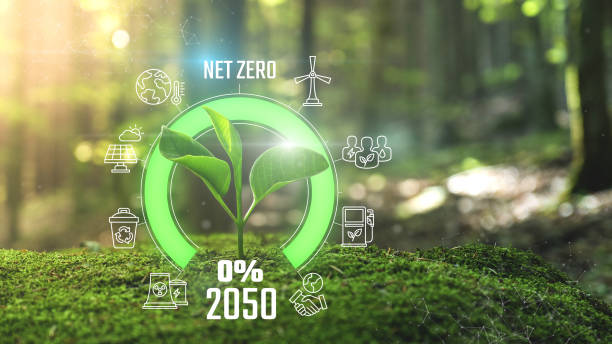The development of the carbon credit market is not only a global green trend but also an opportunity for countries to move towards "Net Zero" emissions and proactively respond to the complex climate change. Vietnam is no exception to this trend.
A carbon credit is a unit of measurement used to quantify greenhouse gas emissions produced by individuals, organizations, or countries. It is essentially a permit or certificate that can be traded, granting the holder the right to emit one ton of carbon dioxide or an equivalent amount of another greenhouse gas.
Each carbon credit represents the right to emit one ton of CO2 or an equivalent amount of another greenhouse gas (tCO2e) into the atmosphere.

The development of the carbon credit market presents numerous opportunities for Vietnam
-
Opportunity to enhance reputation and achieve environmental goals: The carbon credit market not only serves as a catalyst but also provides abundant capital, strongly driving countries and businesses to transition to sustainable development models. This not only enhances international image but is also a crucial factor in realizing international commitments on environmental protection.
-
Financial opportunities from selling carbon credits: Countries and businesses that are highly effective in reducing emissions can leverage business opportunities by selling surplus carbon credits. With the prospect of rising carbon credit prices, Vietnam can potentially generate significant revenue from this market.
-
Opportunities for scientific and technological development: The carbon credit market is a powerful driving force for the green technology transition. In addition to benefiting the environment, the application of new technologies also increases productivity and production efficiency, contributing to the economic development of businesses and the nation.
-
Opportunities to attract green finance: Successfully achieving sustainable development goals not only opens up business opportunities from carbon credits but also helps businesses access abundant green capital. Green capital is a crucial financial tool for promoting environmental protection activities.
Besides opportunities, carbon credits also pose significant challenges for Vietnam if we are not well-prepared
-
An incomplete legal framework for Vietnam's carbon market: The draft on developing the carbon market is currently being submitted to the Prime Minister for approval by the Ministry of Natural Resources and Environment. Although the government has made efforts to issue a draft plan for developing the carbon market, aiming for a pilot in 2025 and official operation in 2028, building a detailed, transparent, and effective regulatory system remains a major challenge. This deficiency is hindering the deployment of the carbon market, causing difficulties for businesses and organizations to participate.
-
Challenges in identifying and measuring the environmental performance of projects: Consulting, auditing, and carbon credit registration capabilities in Vietnam are still limited, data quality is not yet guaranteed, and the knowledge gap between stakeholders remains large. These issues pose difficulties for implementing carbon credits in Vietnam.
-
Challenges in legalizing carbon rights and transferring carbon rights/transferring emissions reduction results: Experts suggest that there are five issues to consider in this process. First, determining the direction of building a national regulation and guideline for all programs, including Emission Reduction Payment Agreements (ERPAs), or developing guidelines for each individual program. Second, identifying the owner of carbon rights and being responsible for allocating rights to relevant parties. Third, transferring carbon rights and contributing to NDCs. Accordingly, it is necessary to consider how the transfer of carbon rights will affect the implementation of NDC commitments, thereby identifying priority targets and the amount of credits that can be traded without affecting commitments. Fourth, building capacity for the carbon registration and transfer system. And finally, the responsibility, or penalty, for non-compliance with commitments.
-
Challenges in improving environmental quality: To reap the benefits of the carbon credit market, companies and countries need to achieve environmental performance. According to an Edgar report (2022), Vietnam ranks 18th in terms of greenhouse gas emissions. Partly due to the relatively backward technologies used in Vietnam, causing inefficiency in energy consumption and increasing the level of emissions required. This poses a significant challenge in terms of time, cost, and technology for Vietnamese companies to achieve good environmental performance.
The carbon credit market promises to bring Vietnam new opportunities in pursuing sustainable development goals, but there are also significant challenges. To accelerate market access, important solutions to be implemented include: perfecting the legal framework for the carbon market, increasing funding for green projects, and promoting research and development in the environmental field.
GIANT BARB SCIENCE AND ENVIRONMENT JOINT STOCK COMPANY
📞 Hotline: +84 995 206 666
✉️ Email: info@giantbarb.com
🏢 Headquarter: No.07 Ton That Thuyet, Dich Vong Hau ward, Cau Giay district, Ha Noi